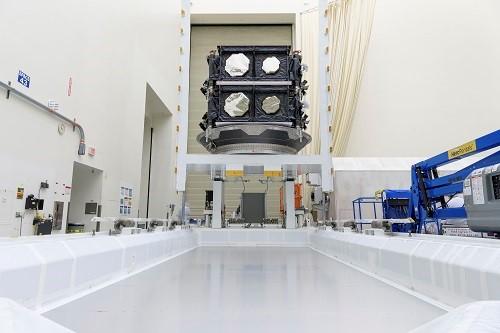The International Air Transport Association (IATA) announced collaborations with British Airways and Microsoft to further enhance the accuracy of IATA CO2 Connect for Cargo in calculating carbon emissions. The announcement was made at the IATA World Sustainability Symposium (WSS), currently taking place in Miami.
British Airways will be contributing flight-level fuel burn data of its approximately 700 daily flights to IATA CO2 Connect. “At British Airways, transparency and consistency are essential to our sustainability efforts. By sharing our flight-level fuel burn data with IATA CO2 Connect, we’re enhancing the accuracy of CO2 emissions calculations and ensuring access, to reliable, clear information. It’s crucial for the entire industry to align on these standards, and collaboration is key,” said Carrie Harris, Director of Sustainability at British Airways.
Microsoft, building on its relationship with British Airways, will also contribute to the development of IATA CO2 Connect for Cargo by providing technical guidance and by becoming one of the first pilot testers of the service.
“Industry collaboration is essential for the decarbonization of aviation. Using CO2 Connect for Cargo will help Microsoft work with airlines to reduce emissions, make informed upstream investments with our partners, and purchase SAF and SAF certificates,” said Nico De Golia, Director of Sustainability for Microsoft Cloud Logistics. “This announcement showcases the potential impact when companies work to build a strong data foundation, driving the key actions needed to achieve our shared sustainability goals.”
These developments build on the March 2024 announcement that IATA is working with the Smart Freight Centre (SFC) in the development IATA CO2 Connect for Cargo.
“Strong relationships, including those announced today with British Airways and Microsoft, will help make IATA CO2 Connect for Cargo a more powerful and more accurate tool. The world is watching as aviation progresses on the challenging journey of decarbonization. Transparency and accuracy—enhanced by these partnerships—are critical. Our common aim is to have the most accurate data about aviation’s carbon emissions. That will help the industry’s customers in managing and reporting their carbon footprints and it will inform the many strategic decisions that airlines will need to make for their own decarbonization,” said Marie Owens Thomsen, IATA’s Senior Vice President Sustainability and Chief Economist.
IATA CO2 Connect for Cargo will be available as of Q1 2025, distributed across quote & book systems, freight forwarders, shippers and airlines. It builds on the experience of IATA CO2 Connect which was launched in June 2022 to provide accurate and consistent carbon emissions calculations for passenger flights. IATA CO2 Connect uses primary data from more than 40 airlines (including British Airways) and an industry- endorsed calculation methodology (IATA Recommended Practice 1678). This differentiates IATA CO2 Connect from most tools/calculators that feed from theoretical data models.
SOURCE: IATA. IMAGE: Nico De Golia, Director of Sustainability for Microsoft Cloud Logistics & Marie Owens Thomsen, IATA’s Senior Vice President Sustainability and Chief Economist.




